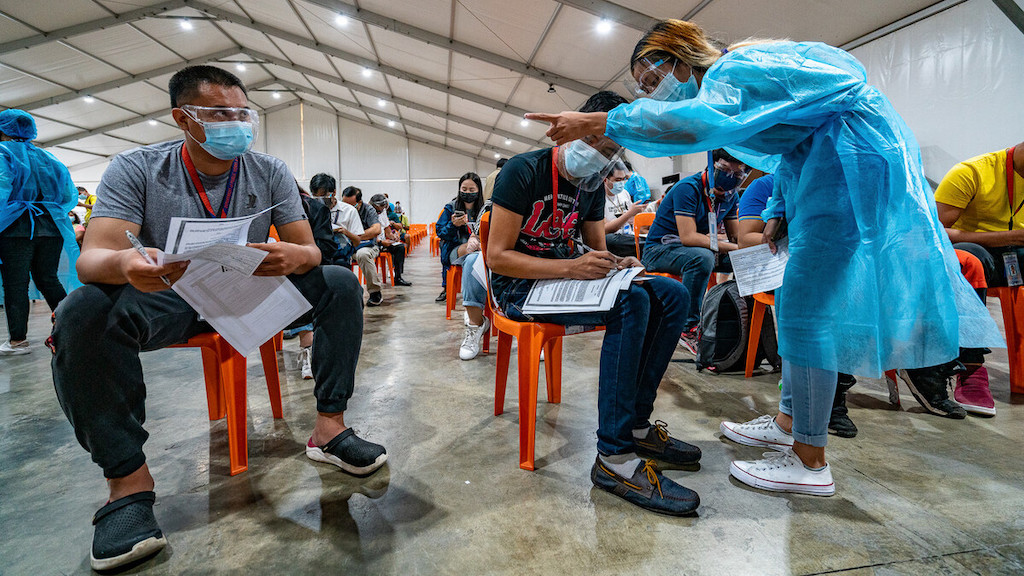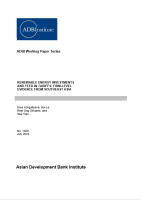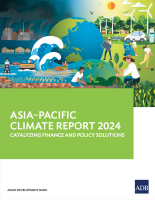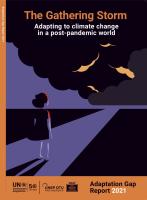
COVID-19 recovery still a priority for ASEAN member states. Photo credit: ADB.
Leaders want countries to brace for headwinds from COVID-19, supply chain disruptions, food shortage, climate change, and other threats.
Faced with the lingering impacts of the COVID-19 pandemic, supply chain disruptions, food shortage, and growing risks from climate change, and other threats, leaders from the Association of Southeast Asian Nations (ASEAN) agreed to press on with regional efforts to ensure recovery and bolster resilience against current and future threats during their recent meeting in Cambodia.
In a statement following the 40th ASEAN Summit, the leaders reiterated their commitment to advance measures to prevent supply chain disruptions, safeguard food and energy security, ensure financial stability, accelerate inclusive digital transformation, transition to a green and circular economy, and foster cooperation in the blue economy.
They also agreed to promote cooperation and partnerships within ASEAN and with external partners based on the principles of consultation and consensus, equality, and mutual respect, while maintaining ASEAN’s centrality.
Socioeconomic cooperation
The leaders pushed to accelerate ASEAN’s transformation into a highly integrated, competitive, sustainable, inclusive, and prosperous economic region. They want member states to foster innovation and creativity by accelerating inclusive digital transformation, creating a secure and an enabling environment to advance science and technology, promoting a conducive regulatory environment, and advancing partnership in human capital development.
They also pressed members to fully utilize ASEAN’s existing free trade agreements and pursue closer partnerships with economies that promise great potential in contributing to the region’s economic integration agenda. They also called on members to respond to emerging issues to ensure that ASEAN remains forward-looking and relevant to businesses and stakeholders and demonstrate the group’s commitment to upholding an open, inclusive, and rules-based multilateral trading system.
In January this year, the Regional Comprehensive Economic Partnership trade agreement took effect. The trade pact is expected to boost economic recovery efforts in the wake of the COVID-19 crisis. It is ASEAN’s biggest free trade agreement to date.
The leaders also reaffirmed ASEAN’s commitment to sustainable development by accelerating the transition to clean energy and energy resilience, promoting sustainable infrastructure and smart cities, and supporting rural development and poverty eradication through rural area empowerment and interconnectivity of rural–urban communities. They also agreed to strengthen social protection, particularly migrant workers, informal workers, children, youth, women, elderly persons, and other vulnerable groups; and promote social work and wider social service workforce to strengthen social protection.
To ensure food security, the leaders said the full and effective implementation of the ASEAN Plus Three Emergency Rice Reserve and the ASEAN Food Security Information System will help cushion the region from the shortage of food staples.
The leaders also agreed to advance Timor-Leste’s accession to ASEAN, while encouraging the island country’s government to intensify efforts in preparing for its membership to the grouping.
Connectivity beyond 2025
In a separate statement, ASEAN leaders committed to continue strengthening regional connectivity beyond the 2025 mid-term plan and promote people-centered and people-oriented approaches, sustainable development, regional integration, and future-oriented policies. The countries will strengthen engagement with the private sector, international and regional organizations, relevant stakeholders, and external partners to support connectivity .
The Master Plan on ASEAN Connectivity 2025 is seen to bring more economic and educational opportunities for the region’s citizens. It focuses on five strategic areas: sustainable infrastructure, digital innovation, seamless logistics, regulatory excellence, and people mobility.
The leaders called on countries to review the masterplan as part of efforts to develop a post-2025 connectivity agenda and build on the achievements, past lessons, and opportunities in the push for a connected ASEAN.
This article was first published by BIMP-EAGA on 6 December 2022.


